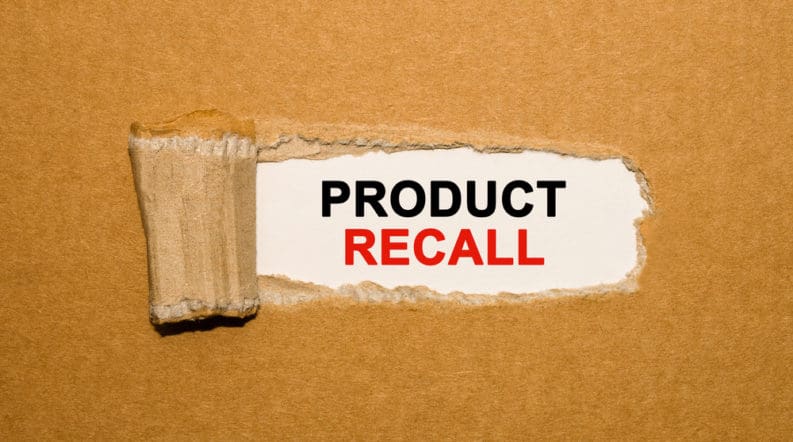There are so many unknowns for people shopping at used car dealerships. Colorado car lots are full of salespeople of all sorts—and like the rest of us, some are good at heart, while some are not so good. Used car dealers aren’t obligated to disclose a vehicle’s major accidents, mechanical issues, or concerns that aren’t even on your radar, like the ghostly scent of an ancient takeout spill that resurrects its curse every summer as the upholstery simmers in the sun. With everything you have to consider when you’re purchasing a used car in Colorado, a known safety issue, such as an open recall, may sound like it isn’t such a big deal. And often, it isn’t. However, there are things you need to know ahead of time if you’re considering purchasing a car with an open recall. Read on to learn more about used cars under open recall, so you walk into your purchase armed with all the facts.
What is an open recall?
First things first: You may be wondering what exactly an open recall is. According to the National Highway Traffic Safety Administration, “A recall is issued when a manufacturer or NHTSA determines that a vehicle, equipment, car seat, or tire creates an unreasonable safety risk or fails to meet minimum safety standards. Manufacturers are required to fix the problem by repairing it, replacing it, offering a refund, or in rare cases repurchasing the vehicle.” The NHTSA goes on to explain that the purpose of an auto recall—and its organization’s monitoring of recalls—is to ensure customers have these safety issues fixed for free in a way that works well and brings the car into alignment with the standards laid out by the Safety Act and other federal laws.
What does the law say about selling cars under recall?
Rental car companies can’t rent you a recalled vehicle that hasn’t been repaired. New cars with recalls in effect can’t be sold by their manufacturers, either. So it may surprise you to learn that a dealership or individual can sell you a used vehicle with an open, unfixed recall. While the NHTSA has requested laws be passed to authorize it prevent automobiles from being sold, leased, or rented when recalls exist, their request has not been granted. This exception is called the “used car loophole,” and the reason it exists, it seems, depends on who you’re asking.
An entity referred to just as “a major automotive group” in one article states the loophole exists to protect individuals who sell or trade in their vehicles from losing money due to recall issues. The National Automobile Dealers Association defends the used car loophole by saying that most recalls don’t require a car to be pulled from the road, and it mentions that the average wait for auto parts due to recall was 60 days between 2010 and 2014. On its website, CarMax explains its policy of selling used cars under recall with this statement: “At the core is the fact that the current recall system is based on the manufacturer’s relationship with its dealers and registered vehicle owners, and not with independent dealers. Among other things, this means that manufacturers have not authorized CarMax to complete recall repairs and close out unrepaired safety recalls.”
Global market research company J.D. Power and Associates points out the broad range of severity and delay for recalls: Some vehicles are recalled because of minor safety infractions—as with the 2012 Nissan Titan, which had its seating capacity incorrect on the label—while others are recalled after safety issues lead to passenger deaths. Similarly, the wait for recall repairs varies from no time at all to hundreds of days. J.D. Power believes a law against selling used vehicles affected by recalls would negatively impact both sellers and shoppers.
Some dealerships require their sales representatives to let shoppers know if a car they’re considering is affected by a recall. Of course, the existence of a rule doesn’t mean every salesperson can be trusted to follow through and point out an open recall to every customer every time. That’s why, as we discuss in the next section, we recommend you take matters into your own hands and verify whether recalls exist on all vehicles you’re considering for purchase. We do note, however, that if your sales representative doesn’t bring an open recall to your attention, it may be a hint that other concerns have been swept under the rug as well.
How do I know if a car is under recall?
When you own a car that’s been recalled, the manufacturer sends you a letter in the post to let you know. That means as long as your car registration information remains current (including your address), you’ll be notified of these safety concerns. But when you’re considering purchasing a car that’s under recall, you may not be alerted with quite that much ceremony.
To be 100 percent sure a car you’re considering isn’t under open recall, you are the only one you can rely on. Once a car makes it onto your short list, record the vehicle identification number (VIN), which is a 17-digit number located on a plate at the lower left of the car’s windshield. The VIN is sometimes located inside the driver’s side door instead, near where the latch closes. Run a search for the VIN of the car or truck in question at safercar.gov (a website powered by the NHTSA) by selecting “Recalls & Investigations.” For a portable alternative, use the SaferCar app for Apple iOS or Android. Here’s a guide to the responses you may see for a VIN you’ve searched.
Recall INCOMPLETE: An open recall exists for this vehicle. Ensure the listed corrective measures are taken before you begin relying on the car for transportation.
Recall INCOMPLETE. Remedy not yet available: A safety issue has been identified, but the manufacturer is not yet ready to provide the parts or services required to correct the problem.
Number of open recalls: 0 | This response means you’re good to go; no known safety issues exist that qualify the car for recall.
This VIN search for open recalls will alert you to most of the safety issues you’d encounter for vehicles from major auto brands as well as motorcycles. However, there are exceptions. You won’t get returns for the following situations: Customer service or other non-safety recalls, those for international vehicles, recalls announced so recently that affected VINs are not yet available, most recalls more than 15 years old, or those for ultra-luxury automobiles or other specialty vehicles.
What should I do before purchasing a car with an open recall?
We’ve mentioned that failure to disclose a recall can be a red flag as far as the seller’s ethics. It may also be a hint to you that the car hasn’t been kept in good working order overall. It’s always a good idea to have a used car inspected by a mechanic of your choosing before you sign on the dotted line. Take discovery of an open recall as a reminder to do just that.
However, learning that a car you’d like to buy is under recall isn’t automatically negative. For one thing, in addition to the safety issue, you’ve also uncovered a bit of negotiation power. You may choose to request that the seller or dealership address the recall issue before you purchase the car. As an alternative, the sales representative should agree that at the very least, you’ll need to spend a little time making sure the safety issue is addressed before you drive the car. That means they may ratchet the price down just a bit to sweeten the deal in light of the recall.
Automotive journalist Keith Griffin suggests in an article for ThoughtCo. that you start by requesting five percent off the vehicle’s asking price. You can point out to your sales representative that the safety issue giving you pause is likely to make other buyers nervous as well, then make your counteroffer. Griffin goes on to explain that if the seller doesn’t make repairs to address an open recall, that should buy you at least $100-200 off the asking price to compensate for your time, assuming there’s a manufacturer-authorized dealer in a 25-mile radius with the ability to fix the problem.
Though determining whether a vehicle has been affected by recalls probably isn’t at the top of your mind when you’re shopping at used car dealerships in Colorado, perhaps it should be. As Carfax reports, one in five vehicles on American roads need repairs associated with open recalls and haven’t received them. Somewhat alarming is that minivans, the unofficial vehicle of soccer moms and karate dads everywhere, are most affected, followed by family-friendly SUVs. The percentage of cars under open recall is much more than just an anomaly. That’s why we suggest making it a point as a shopper looking for a used vehicle to ensure you’re aware of any safety issues due to recalls for the cars you’re considering. Who knows—it could save you some money, or it could even save your life.




